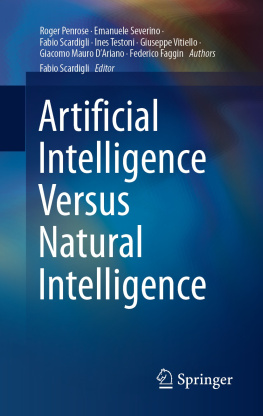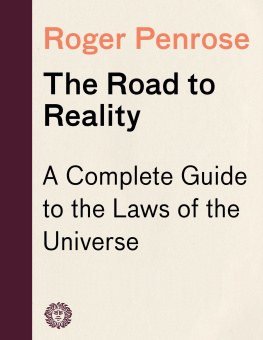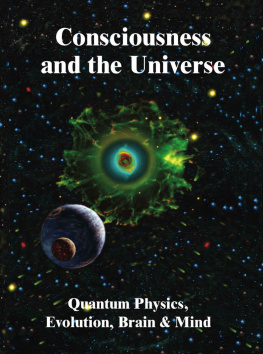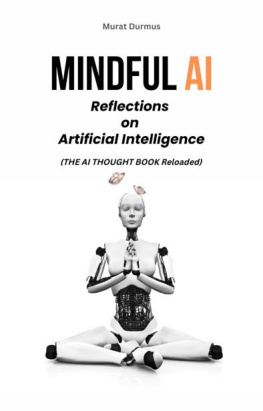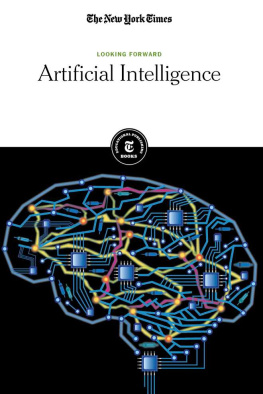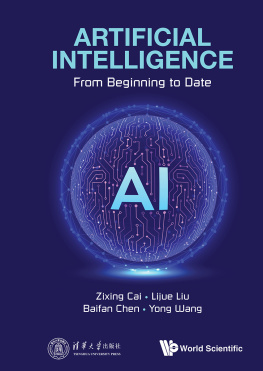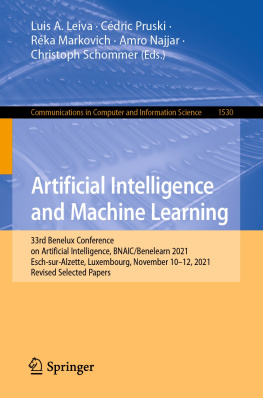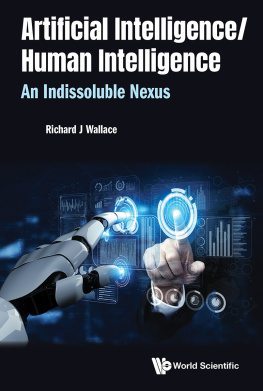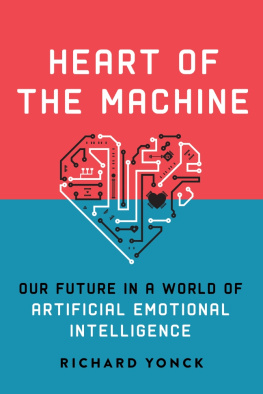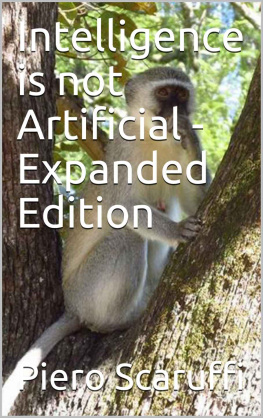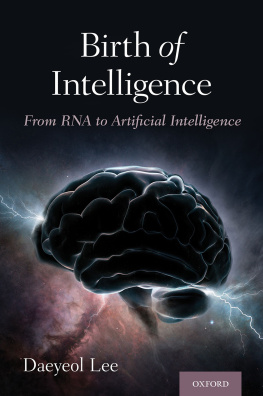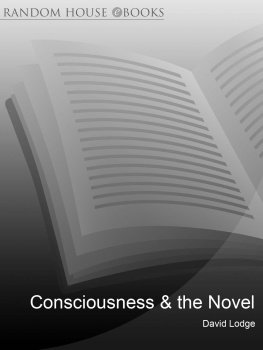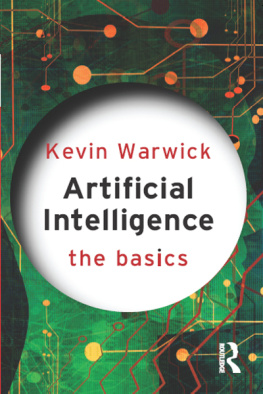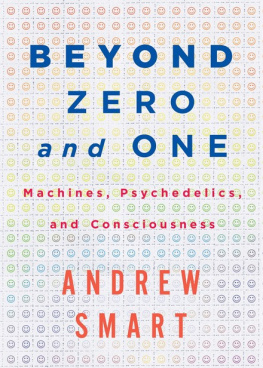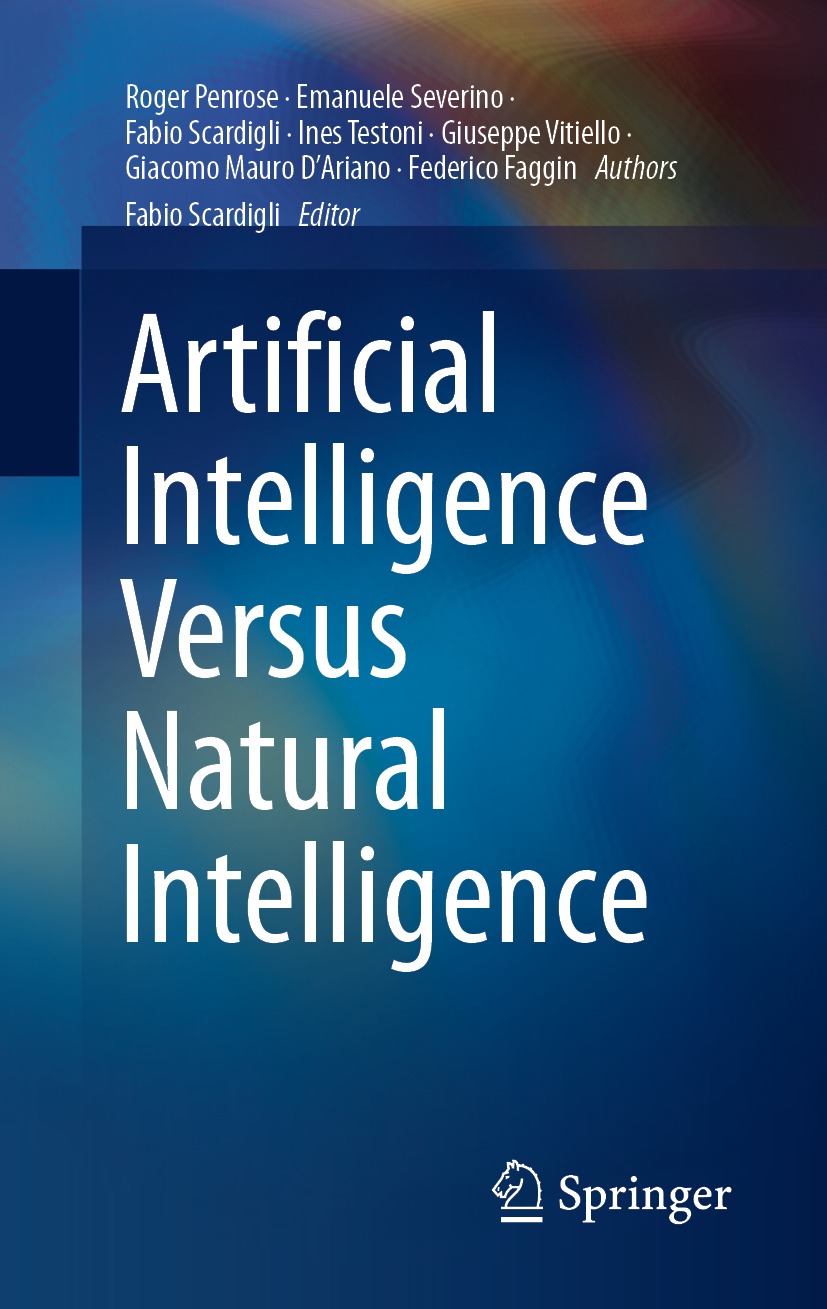Authors
Roger Penrose , Emanuele Severino , Fabio Scardigli , Ines Testoni , Giuseppe Vitiello , Giacomo Mauro DAriano and Federico Faggin
Artificial Intelligence Versus Natural Intelligence

Logo of the publisher
Editor
Fabio Scardigli
Dipartimento di Matematica, Politecnico di Milano, Milan, Italy
Authors
Roger Penrose
Mathematical Institute, Oxford University, Oxford, UK
Emanuele Severino
Brescia, Italy
Fabio Scardigli
Dipartimento di Matematica, Politecnico di Milano, Milan, Italy
Ines Testoni
FISPPA, Section Applied Psychology, University of Padua, Padova, Italy
Giuseppe Vitiello
Dipartimento di Fisica, Universit di Salerno, Fisciano, Italy
Giacomo Mauro DAriano
Dipartimento di Fisica, Universit di Pavia, Pavia, Italy
Federico Faggin
Los Altos Hills, CA, USA
ISBN 978-3-030-85479-9 e-ISBN 978-3-030-85480-5
https://doi.org/10.1007/978-3-030-85480-5
The Editor(s) (if applicable) and The Author(s), under exclusive license to Springer Nature Switzerland AG 2022
Language rights for Italian edition excluded. The Chapter Hard Problem and Free Will: An Information-Theoretical Approach is licensed under the terms of the Creative Commons Attribution 4.0 International License (http://creativecommons.org/licenses/by/4.0/). For further details see license information in the chapter.
This work is subject to copyright. All rights are solely and exclusively licensed by the Publisher, whether the whole or part of the material is concerned, specifically the rights of reprinting, reuse of illustrations, recitation, broadcasting, reproduction on microfilms or in any other physical way, and transmission or information storage and retrieval, electronic adaptation, computer software, or by similar or dissimilar methodology now known or hereafter developed.
The use of general descriptive names, registered names, trademarks, service marks, etc. in this publication does not imply, even in the absence of a specific statement, that such names are exempt from the relevant protective laws and regulations and therefore free for general use.
The publisher, the authors and the editors are safe to assume that the advice and information in this book are believed to be true and accurate at the date of publication. Neither the publisher nor the authors or the editors give a warranty, expressed or implied, with respect to the material contained herein or for any errors or omissions that may have been made. The publisher remains neutral with regard to jurisdictional claims in published maps and institutional affiliations.
This Springer imprint is published by the registered company Springer Nature Switzerland AG
The registered company address is: Gewerbestrasse 11, 6330 Cham, Switzerland
Contents
Fabio Scardigli
Roger Penrose and Emanuele Severino
Ines Testoni
Giuseppe Vitiello
Giacomo Mauro DAriano and Federico Faggin
The Author(s), under exclusive license to Springer Nature Switzerland AG 2022
F. Scardigli (ed.) Artificial Intelligence Versus Natural Intelligence https://doi.org/10.1007/978-3-030-85480-5_1
Introduction
Fabio Scardigli
(1)
Department of Mathematics, Polytechnic of Milan, Milan, Italy
This book contains the transcriptions of the talks and the debate between Roger Penrose and Emanuele Severino that took place during the conference Artificial Intelligence vs Natural Intelligence, held in Milano, at the Cariplo Congress Center, on May 12, 2018.
Besides the keynote speeches of Penrose and Severino, there were the illuminating talks of Giuseppe Vitiello (theoretical physicist), Mauro D'Ariano (theoretical physicist), and Ines Testoni (psychologist), which gave rise to the three essays completing this book.
The conference was conceived and organized (like the previous one on Determinism and Free Will) by a group of friends and colleagues: Fabio Scardigli, Marcello Esposito, and Marco Dotti. Our warmest thanks go to our colleague Massimo Blasone for his help during the workshops days.
The success of the conference was somehow astonishing, even greater than that of the previous meeting. More than 600 people crowded into the main hall of the Cariplo Congress Center and into two adjacent rooms, equipped with closed circuit television. This vividly testifies to the great interest that the general public has for the themes of Artificial Intelligence, Theory of Consciousness, Intelligent devices, and all that.
Understanding and Algorithms
Regarding those topics usually grouped under the heading AI (Artificial Intelligence), the perspectives of the two main speakers, the mathematical physicist Roger Penrose and the philosopher Emanuele Severino, are obviously quite different. Nevertheless, as the reader will soon discover, both agree that we do not yet have intelligent devices, and also that, if we follow the vision of the so-called Strong AI (presently still the mainstream), we will never be able to build such devices. This opinion is also supported by the authors of the other essays in the book, although with their own slant.
In his main talk, Penrose focuses on the relations between the words intelligence, understanding, and consciousness. Being a mathematician, he kids, connections among words are more important to me than their true meaning. Relations among concepts are more illuminating than substantial definitions, in other words. Therefore Penrose starts from the idea that the word intelligence, at least in the standard usage, implies understanding, and understanding requires some awareness or consciousness. Going through different examples, discussed in great detail, Penrose shows that the machines, or software, at our disposal today are computational devices, maybe very sophisticated, but all essentially based on the ideal prototype of the Turing Machine. Intelligence and understanding, on the other hand, seem to exhibit properties that escape simple computability. Intelligence is something more than mere computational ability. Examples taken from chess, mathematical induction (the intriguing Goodstein theorem), the tiling of the Euclidean plane (polyominoes, which cannot be produced through computable algorithms), all converge to show that understanding is something which is not achieved by rules. So, a general quality of understanding seems to be that it is not an algorithm. Hence, understanding, according to Penrose, is not an element or a result of a (very) complicated application of a set of rules (algorithm).
Quantum Mechanics and Consciousness
Penrose then reviews the two main theoretical pillars of modern physics, namely General Relativity and Quantum Mechanics, and points out that there is only one specific element of modern physics that cannot be reproduced on a computer, because it is not computable. To be precise, it is the measurement process in Quantum Mechanics, the so called collapse of the wave function. This is not described by the Schroedinger equation, and cannot be implemented (not even in principle) by any computable algorithm.

